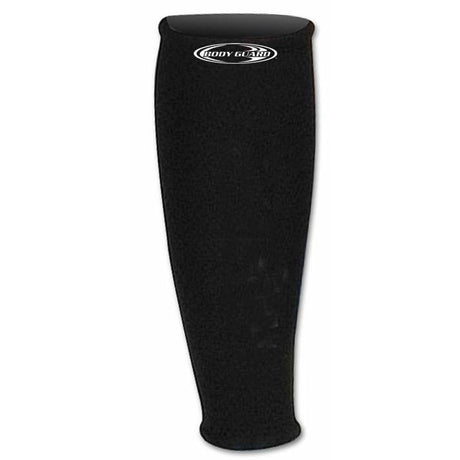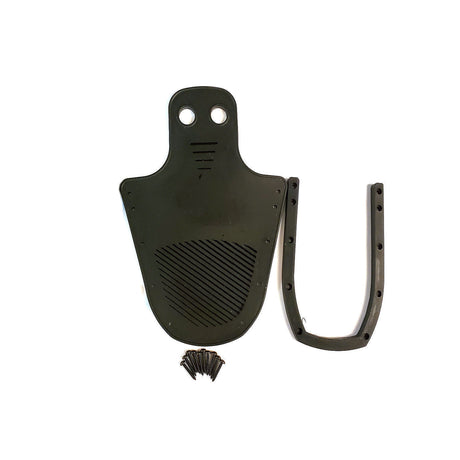The cold months are here. It's time to cover the boat and put 'er away -- but wait! Are you storing your boat correctly? Or, are you leaving some critical storage bit out, leaving your boat at risk of damage before next season? Here's how to properly store your boat in winter time. Most importantly, we're also covering things you should not do.
"Can I store my boat in the water in winter?"
This is usually the first question new (and even veteran) boat owners ask. The answer is: Maybe, but you probably shouldn't.
Although it's technically possible to store your boat in the water through winter (sometimes called "wet storage"), the prep, cost, and risk entailed are usually not worth the convenience and cost savings.
Here's why.
Damage to Fiberglass & Finishes
Repeat, direct exposure to freezing water is likely to cause damage to fiberglass hulls. The expansion and contraction of the hull in response to water temperatures -- especially when transitioning between freezing and above freezing -- may result in the hull developing hairline fractures in the finish, and potentially do the fiberglass itself.
Moisture and Rust
Even if the hull, paint, and trim withstand the freezing and thawing cycles of winter water, the deck and cabin is likely to take on moisture that condensates inside the boat's cover.
Over weeks of exposure, this moisture will inevitably penetrate the cab and living quarters, causing mold and mildew to grow in fabrics, and steels and other alloys to corrode.
Damage to Below-Waterline Openings
When stored in the freezing water, all thru-hulls and other below-the-water openings need to be prepped and sealed. Seacocks and gate valves need to be closed, and all hoses removed with moisture wiped away to prevent freezing damage.
Plastic thru-hulls will likely suffer damage when exposed to freezing and thawing cycles; only thru-hulls made from alloys should be exposed to winter water.
Exhaust ports should be plugged, and any external impellers, transducers, and other hull-mounted equipment should be removed, and their holes plugged.
Shifting From Ice and Weather
The cold months are certain to bring heavy tides and strong winds across the bow of your boat, repeatedly. Most often, it's inadequate mooring and lacking dock bumpers that result in boats shifting around while stored on the water.
If you're learned enough to take the necessary steps for wet storage in winter, make sure you've got solid mooring lines, and fenders and dock bumpers keeping your hull secure and safe from damage.
Alternatives to Wet Storage
Thankfully, there are plenty of affordable alternatives to storing your boat in the water by the dock during winter.
Dry Storage Boatyard
Boat storage in a locked yard is safe, and quite affordable -- in many cases, it's far less costly than the rent you'd pay to keep your spot at the docks. While most docks charge somewhere between $7 and $30 per foot per month, many dry storage yards charge flat fees or $50 to $150 per month.
Most boatyards are situated relatively close to the waterline, making it easy to trailer your boat to and from the yard between seasons.
24/7 Self Storage
If you can't source a spot in a dedicated boatyard, give some of your local storage units a call. Beside their climate-controlled lockers, many storage unit locations offer longterm vehicle parking, and most are happy to accommodate personal boats.
Fees may be a bit higher than a boatyard, but you'll still likely pay less than any rented mooring spot at the docks.
Tips For Off-Season Boat Storage
We're not just covering the basics of winterizing your boat, here. We'll also cover some less common -- often overlooked -- things that many boat owners simply forget about.
#1: Fill The Tank, Treat The Fuel
The age-old argument of "empty vs. full tank" rages on -- but it's our opinion that you should, in fact, leave your tank at least half full. Just be sure to treat the stuff with a stabilizer before putting your boat away.
Leaving your boat in cold storage with an empty tank will invite moisture and corrosion. That moisture could seep into the fuel lines, too.
#2: Clean The Deck and Cab
Pretty self-explanatory, right? Almost too common sense -- which is why many boat owners simply skip this step. Giving the deck a solid wash, rinse, and shine will remove grime, salt, and other gunk that, while not always visible to the eye, will potentially damage your boat's surfaces and finishes once left to sit for months.
Treat the deck and hull with a spray-on marine wax as a simple but effective extra measure against wear from the frequent freezing and thawing of moisture -- and the condensation it brings with it -- during winter.
The same applies for the cab. Treating vinyls, leathers, and fabrics with protective coatings will extend the life of your cab's accoutrements, so you can enjoy the next warm season on the water without any cracked, faded, or frayed interiors.
#3: Change The Oil
This may seem counterintuitive, but it's always good practice to change the oil in your boat's motor before storing it for winter.
Oil will, over time, collect some water -- seeing a theme, here? -- which, if left to separate in the sump, will allow corrosion to occur in your boat's motor's bottom end. Modern oils also act as detergents, cleaning away carbon fouling and grime in the engine.
Running fresh oil through the motor before storage will minimize any damage these contaminants can otherwise cause if left to sit for weeks and months.
#4: Fog Oil The Head
A less common -- but equally recommended -- practice requires spraying fogging oil through the air intake of the motor. This anti-corrosive lubricant will seep through the top end of the motor, coating internal components and protecting them from corrosion.
#5: Remove The Battery
Although you can simply hook up your boat's battery to a tender, leaving it exposed to the cold while in storage will inevitably damage the battery's cells, reducing its cranking amps and charge capacity.
The terminals and connectors on the battery's leads can also act as cathodes and anodes in the presences of moisture, causing rapid, severe corrosion when left in dry storage. It's best to remove the boat's battery and instead store it inside.
#6: Drain All Water
Don't forget to drain all the tanks and (anything else that holds water) around your hull. Check all livewells, coolers, ballasts, and bilges for any standing water. Drain each thoroughly, let them air out, and clean them as needed.











